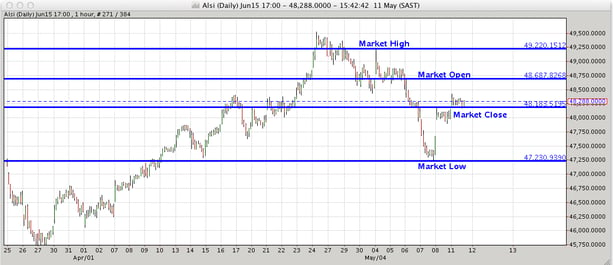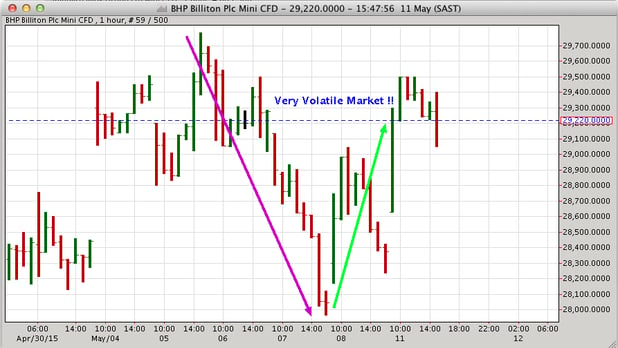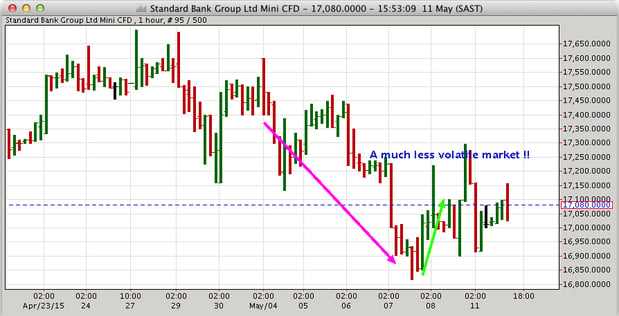Anyone who held EasyEquities positions last week would have experienced some quite dramatic market movements. The overall market moved down almost 5% in the first three days of the trading week, and then bounced strongly on Friday by almost 3%.
I believe that there are always strong lessons we can take away from an experience such as this.

When we start in the markets we often rely on advice that we get from others who are either more experienced or, at the very least, confident in their abilities.
For South African equities, companies such as Anglo American, BHP Billiton and Standard Bank are regarded as “must haves” in a portfolio. However, last week these stocks, which have a well-deserved reputation of being profitable and well managed, behaved very differently from how you might expect.
Billiton’s price went down over 7% when the overall market declined 5%, and went up 6% when the overall market only recovered 3%.

In contrast, Standard Bank declined by less than 4% and rose approximately 2% during the same time period.
Nothing would ordinarily have changed from the beginning to the end of last week, suggesting that suddenly Standard Bank had become a much better or more profitable company than Billiton, or that there was not a place for both of them in our portfolios.

The reasons for such differences in the week’s movements on the overall market, and the two stocks that I have used as examples, can often be quite complex, but I think that we should focus on a small number of issues.
What happens in a week should be of no consequence to us if we are building a portfolio the long term. We must not take fright from moves like these. Remember, financial markets do not move in straight lines. We should merely use the opportunity of lower share prices to buy more shares – in this case, either in Standard Bank or Billiton.
In my portfolio I chose to buy Standard Bank rather than Billiton. (I already have a large number of Billiton shares in my portfolio, but not so many that I am completely dependent upon them for my portfolio performance.)
Billiton, as we know, is a commodity-based company, which means its price tends to be quite volatile from time-to-time. This is because commodities themselves are volatile by nature, coupled with the fact that the commodity market itself is currently undergoing some large long-term changes. We should therefore expect volatility in Billiton when the market itself is volatile, and not be panicked into a situation where we want to or have to sell Billiton.
Standard Bank’s share price is much more dependent on factors in the local economy, specifically on changes in interest rates. The moves in the local market were inspired by market changes in international equity markets and not something that happened here in South Africa. There was nothing in last week’s local economic announcements that could have indicated a change in interest rates in the next two or three months. Standard Bank was, therefore, less volatile – but it still moved far enough down to give me an opportunity to buy some shares.
My trading victory
I bought Standard Bank shares at R172.00 and the market closed at approximately that level for the week. I count this as a trading victory as I was not alarmed by the market moves. That was because I recognise that markets do not always move in a straight line, in a single direction. Secondly, the size of my Billiton position did not send me into a panic AND the position I held in Standard Bank was under enough control for me to be able to add to that position.
I think the key takeout from last week’s activity is that we should all aim to be in a position where we are not put under undue pressure when a market moves a big distance in a short period of time. This is especially true of an equity portfolio that we are building for the long term.
Good luck with this week’s investments! Take the appropriate amount of risk that you are happy with. Next week we will examine a few strategies to help decide exactly when to buy and when to sell shares.




